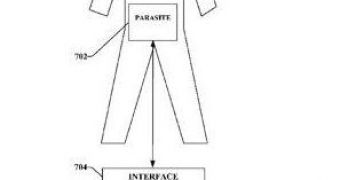Microsoft is spending approximately $9 billion on research and development per year, and some of this money went to exploring a strategy which involves curing diseases by infecting patients with altered parasites. The Redmond company even filed for a patent, titled “Adapting Parasites to Combat Disease,” uncovered by TechFlash.
Of course, the fact that the software giant is attempting to patent this concept does in no way mean that custom-built parasite therapy is just around the corner.
However, at least at an R&D level, the concept of treating conditions or needs of a patient by turning to controlled parasites is not without merit.
“Electronics can be adapted to exploit novel methods of monitoring body functions and delivering useful substances to the body, including treatment of malaria and monitoring and/or treating other bodily conditions,” reads an excerpt of the patent’s summary.
“By modifying or making a parasitic organism that can be programmatically controlled by a stimulus external to the altered parasitic organism, the parasitic organism can be a powerful tool in delivering therapeutic compounds.”
Essentially the patent describes a technology that allows doctors to control the parasite in order to have it fight disease instead of producing it.
In this regard, a variety of existing parasitic organisms could be leveraged as part of treatments, anything from mosquitoes, fleas, ticks to arthropods, annelids or leeches, but also roundworms, pinworms, whipworms, tapeworms, hookworms, heart worms, etc.
And in this regard, the software giant’s research is nothing new. People have already been using parasites such as leeches for medicinal purposes, and they’re not the only example.
“Control over the function of the parasitic organism permits the selective activation of a treatment protocol, since the altered parasitic organism has the inherent ability to conduct nanoscale manufacturing of one or more beneficial substances.
“Rather than build nanomachines from scratch, altered parasitic organisms can be exploited as custom designed nanomachines that manufacture and/or deliver useful substances or payloads to a host.
“In order to effectively manage the host's condition, the modified parasitic organism can be used to deliver beneficial care and/or to record the internal state of the host,” the company adds in the patent filing.

 14 DAY TRIAL //
14 DAY TRIAL //